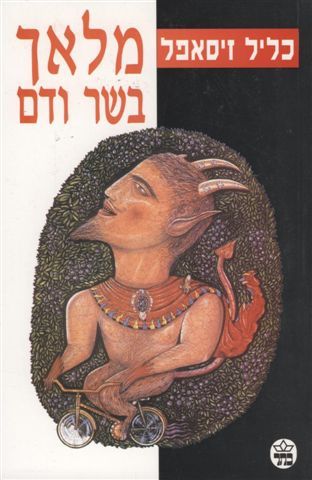
An Angel of Flesh and Blood
This novel about young people in Tel Aviv in the 1990s revolves around the lives and inner world of two women in their early twenties. The beautiful slender Ori is a city night owl who changes male partners like socks, but behind her glamorous image she is troubled by existential anxieties untypical of young people. Inheriting her late grandmother’s flat, she moves into it from her parents’ home, but leaves it untouched with its odors of old age. Ori prefers the homes of her many friends, but her real love is Doron, her dancing teacher, about whom she dreams of sharing her life. The fantasy is shattered when Doron is terrified by the young woman’s intense sexuality, and his body does not respond to her at the critical moment. The mortified Ori feels that her entire future was demolished in that instant.
This is a psychological novel. The author moves back and forth in the mental lives of her characters, showing considerable skill in shaping the relationships between them. On the surface of the plot there evolves a particular relationship between Ori and a girl of her age by the name of Shinan – which means angel – who works at night in a Tel Aviv sweets and nuts shop. The two girls talk to each other about themselves and the lives they lead, and their confidences serve as a literary device to depict other aspects of their existence. Thus Ori hears from Shinan about her relations with Noam, a 33-year old accountant, who used to suffer from impotence and recovered with Shinan’s help. His bourgeois aspirations revolve around having a family and raising children. For her part, Ori tells Shinan about the men in her life, while suppressing her anxieties, such as her fears for her younger brother who has just been conscripted. This preoccupation builds up with other anxieties that Ori keeps to herself, and finally breaks out in a mad frenzy in the course of which Ori smashes her brother’s knees with a hammer, to foil his plans of serving in a commando unit.

-
“ A wonderfully talented book, in many respects a veritable tour de force...the youthful, feminine and literary harmony is reminiscent of Ya'akov Shabtai's Past Continuous.”
